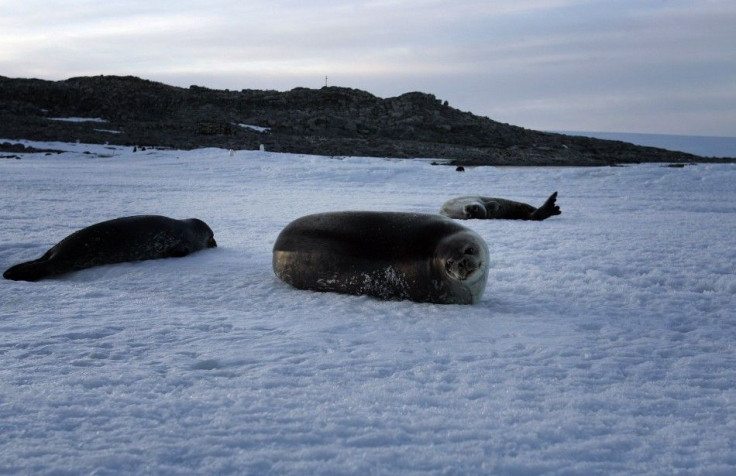Antarctica Loses Large Ice-Free Region Due to Global Warming

A large ice-free region the size of New Zealand has disappeared in Antarctica which scientists attribute was due to the burgeoning global warming conditions of the planet.
First noticed in satellite images during the polar winter season in 1974, researchers from Canada's McGill University believed a "freshwater lid" probably closed the ice-free region, or polynya.
Scientists said the polynya stayed open for three full winters before it closed due to the effects of climate change on ocean salinity, researchers said in a study published in Nature Climate Change.
"Deep ocean waters only mix directly to the surface in a few small regions of the global ocean, so this has effectively shut one of the main conduits for deep ocean heat to escape," Casimir de Lavergne, study lead author, said in a statement.
The study analyzed tens of thousands of measurements made by ships and robotic floats in the ocean around Antarctica over a 60-year period.
The ocean's surface has been found to be steadily getting less salty since the 1950s, according to the study. This lid of fresh water on top of the ocean prevents mixing with the warm waters underneath, trapping the deep ocean heat.
"This agrees with the observations, and fits with a well-accepted principle that a warming planet will see dryer regions become dryer and wetter regions become wetter," Jaime Palter of the McGill University and the study's co-author, said. "True to form, the polar Southern Ocean - as a wet place - has indeed become wetter. And in response to the surface ocean freshening, the polynyas simulated by the models also disappeared."
The melting of glaciers on Antarctica has also been known to add more freshwater to the ocean, which scientists said could possibly be strengthening the freshwater lid.





















